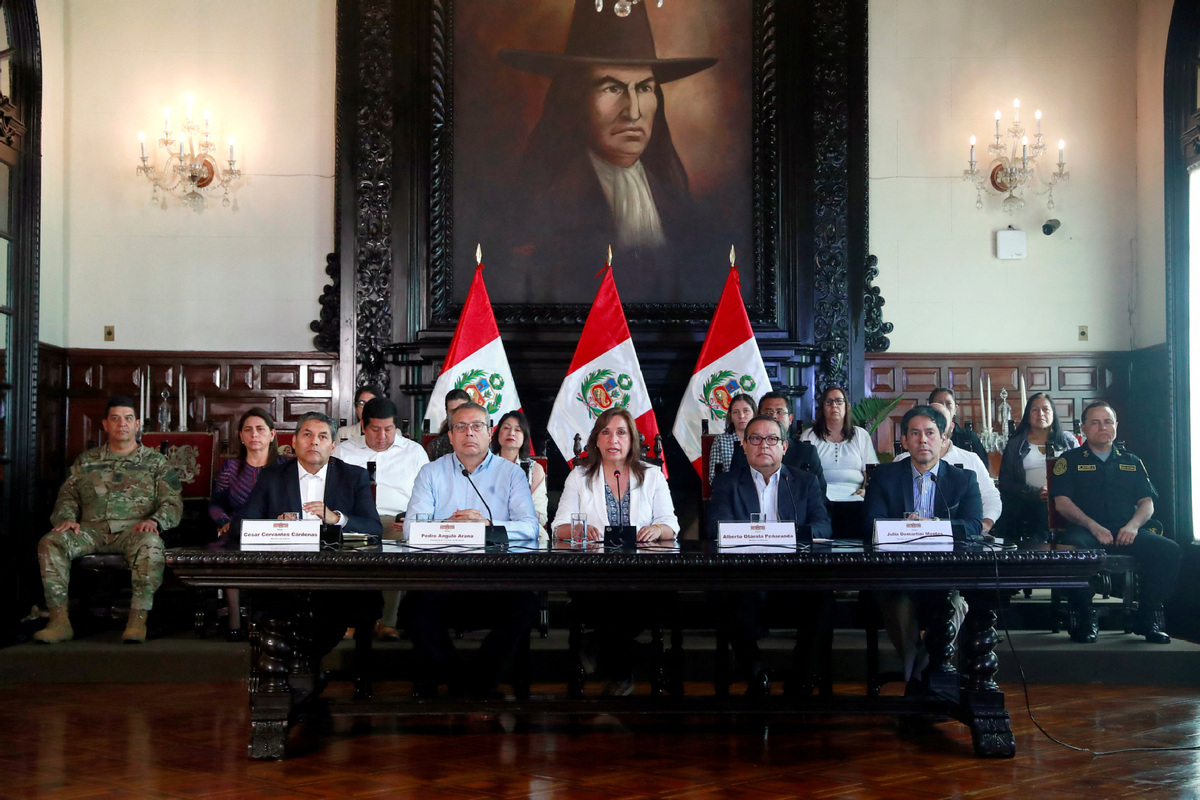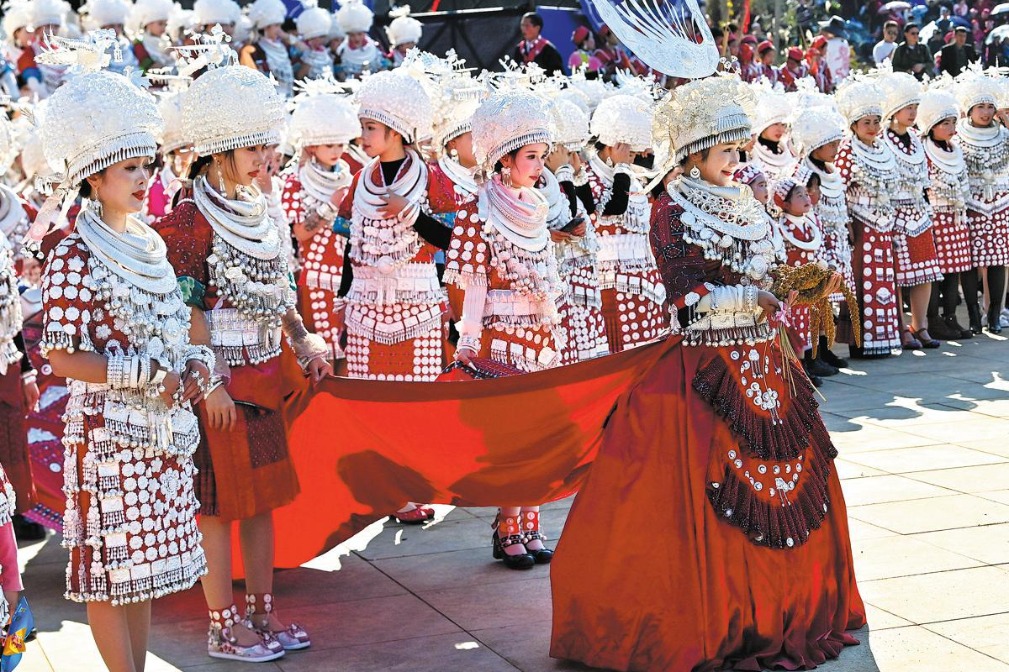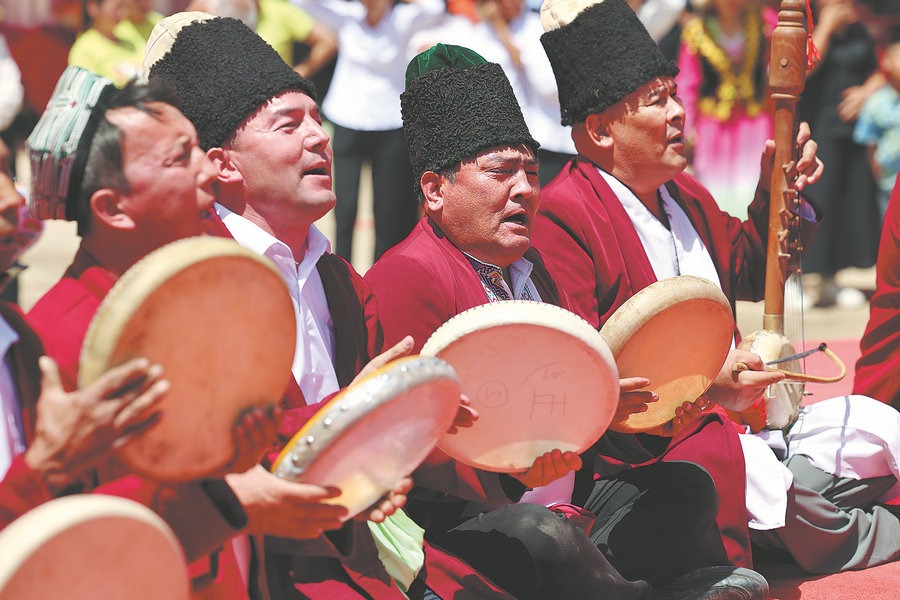Peru congress rejects early elections bill
By SERGIO HELD | China Daily | Updated: 2022-12-19 07:07

Political upheaval and protests leave at least 17 dead, two ministers resign
Peru's Congress rejected on Friday a bill to bring forward general elections from 2026 to December next year, as protests continue across the country. At least 17 people have been reported to have died in protests or as a result of them.
The bill was presented as a 30-day state of emergency was declared by authorities on Wednesday, after widespread protests following the congressional swearing-in of Dina Boluarte as the country's first-ever female president to replace Pedro Castillo, who is now in custody.
Hernando Guerra, president of the legislative constitution commission, presented the bill and said it would allow "enough time" to make corresponding electoral reforms, but it failed to gain adequate congressional support.
The bill needed 87 votes to gain approval but in the event received only 49 votes in favor, with 33 against and 25 abstentions.
Opposing Boluarte to hold the presidency till 2026, the bill aims to shorten her term of office to April 30, 2024, and Congress' term to April 28 of the same year.
In protest against the deaths of anti-government demonstrators, the country's ministers of education and culture handed in their resignations to Boluarte on Friday.
The first to resign was the Minister of Education, Patricia Correa, whose resignation letter, posted on social media, said "the death of compatriots has no justification "and "state violence cannot be disproportionate and cause death".
Peru faces a "large scale" crisis that calls for democratic conviction and respect for order as well as the lives of all Peruvians, Correa said.
The Culture Minister, Jair Perez, echoed that sentiment in his letter, saying Peru "needs peace and effective dialogue, not more violence".
He called on authorities "at the highest level and in all branches to reflect and take action to bring peace to the Peruvian people".
Boluarte's administration took office on Dec 7 after her predecessor Castillo was ousted for alleged "permanent moral incapacity".
Castillo supporters subsequently took to the streets in parts of the country, demanding his release, Boluarte's resignation, that Congress be shut down and for early elections. The protests spread and intensified, leaving at least 17 people dead.
The protesters have set fire to police stations, blocked the main national highway and blocked access to airports, stranding hundreds of foreign tourists.
Concerns expressed
On Friday, the United Nations expressed "deep concern" over reports of protesters' deaths.
"Things are extremely complicated," Ramon Abasolo, a lawyer and political analyst, said from the capital, Lima.
Rodrigo Barrenechea, a Peruvian political scientist and professor at Catholic University of Uruguay, said it is difficult to predict what comes next, noting Peru needs experienced politicians to solve such crises.
Bruno Lizzetti, a Peruvian political science student at Complutense University of Madrid, said: "In the coming weeks let's hope that the right decisions will be made so that Peru can find a peaceful solution to this situation and finally put an end to the political crisis that has been going on since 2016."
On Friday Mexico's President Andres Manuel Lopez Obrador criticized the state of emergency imposed in Peru to tackle the protests.
The declaration of a state of emergency has given police special powers, Reuters reported, and Lopez Obrador said the country was in a "state of siege".
Peru has been rocked by one crisis or another for years and has been wracked by political instability. The present turmoil threatens to undermine economic stability. Ratings agencies are warning of downgrades, while protesters have blockaded mines and hurt supply chains, including routes to copper mines. Blockades have had an impact on operations at huge mines such as Las Bambas, which accounts for about 2 percent of the world's copper.
The Economy Minister, Alex Contreras, has pledged to take steps to reactivate the economy, maintain fiscal responsibility and take quick steps to stimulate growth. Last month the country's growth outlook was cut to between 2.7 percent and 3 percent, compared with earlier forecasts of 3.3 percent. Contreras said the protests would have a limited impact on growth.
Xinhua contributed to this story.
The writer is a freelance journalist for China Daily.
SERGIO HELD in Bogota, Colombia
























